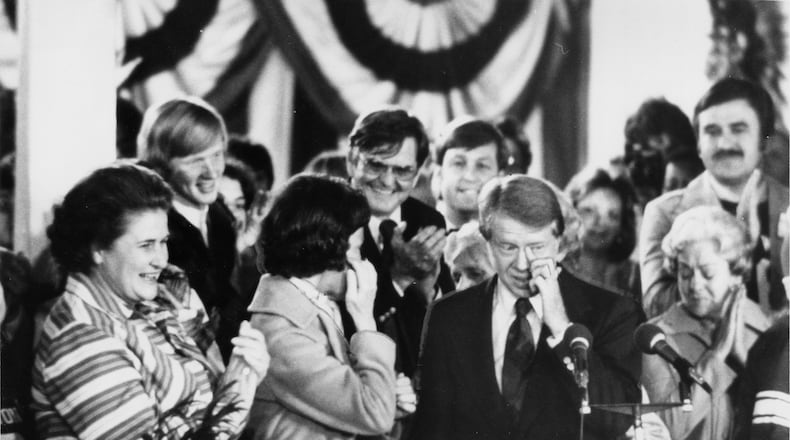I didn’t live in Georgia back in 1976, and the odds are that you didn’t either. The state’s population has doubled since then, so most of us who call ourselves Georgians today weren’t here to witness the election of Jimmy Carter as president. Nor do we have a sense of its impact on the state.
But over the past quarter-century, I’ve run across a lot of Georgians who do remember. Some had worked as volunteers on the Carter campaign; some went to Washington to work in his administration. And a lot of those who have offered stories were just people who witnessed it from the sidelines.
But one thing their stories all share is a sense of marvel. Forty years ago, they didn’t really believe that a Deep South state that had elected Lester Maddox as governor could turn a peanut farmer into a president. As a headline in the Atlanta Constitution put it, “Jimmy Who Is Running For What!?” More importantly, Georgians didn’t believe that the country would accept a president who talked like they did and prayed like they did.
So before it could be anything else, Carter’s bid for the presidency had to be a triumph of the imagination. And it was a triumph of the imagination not just for Carter but for the entire state.
Politics has changed a lot. Today, it’s a lot easier for an obscure governor to break into the national consciousness. It’s also a lot easier to build a network of supporters and donors across state lines. Back in the mid-’70s though, unknown candidates such as Carter had to rely much more heavily on their own home-state networks for resources and support. A lot was made about Carter’s “Peanut Brigade” of Georgia-based volunteers that invaded northern primary states, but the truth is that was only the most visible aspect of a commitment by the state’s entire power structure.
And to the amazement of those involved, it succeeded, making Carter the first person from the Deep South ever elected president.
Admittedly, his presidency was not the success that he wished it to be, although I think a fair reading of history would conclude that the man was flat-out snake-bit. Much of what happened was out of his control and would have been out of the control of anybody who held office.
Such debates aside, though, I think it’s important that we give Carter credit for changing Georgia’s image of itself. Almost a century after Henry Grady started selling “The New South,” Carter’s election announced that the South had indeed risen again, with Atlanta as its capital. And it wasn’t just smoke and mirrors, it was real.
With Carter’s election, the state demonstrated that it had the talent, resources and grit to play on the national stage, and once that realization sunk in, confidence soared. Ambitions that had once seemed too lofty — such as winning the Olympics — suddenly looked attainable. Carter’s high standing internationally, heightened by his work through the Carter Center, also gave Atlanta and Georgia a profile that has made it more attractive to immigrants and to foreign business, and that reputation continues to produce benefits to this day.
In short, the kid from Plains helped bring the world to Georgia, and modern Georgia to the world, and it began with those ten humble yet assertive words:
“I’m Jimmy Carter, from Georgia, and I’m running for president.”
About the Author
Keep Reading
The Latest
Featured


